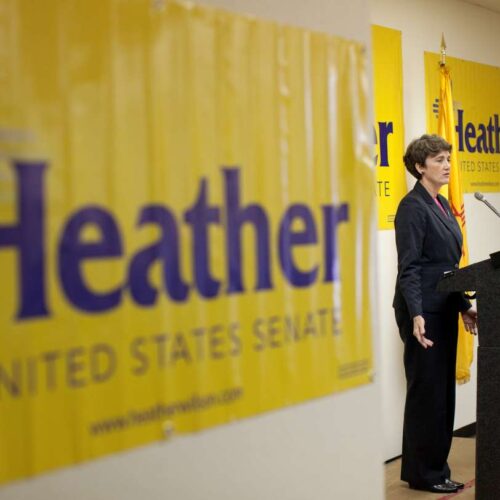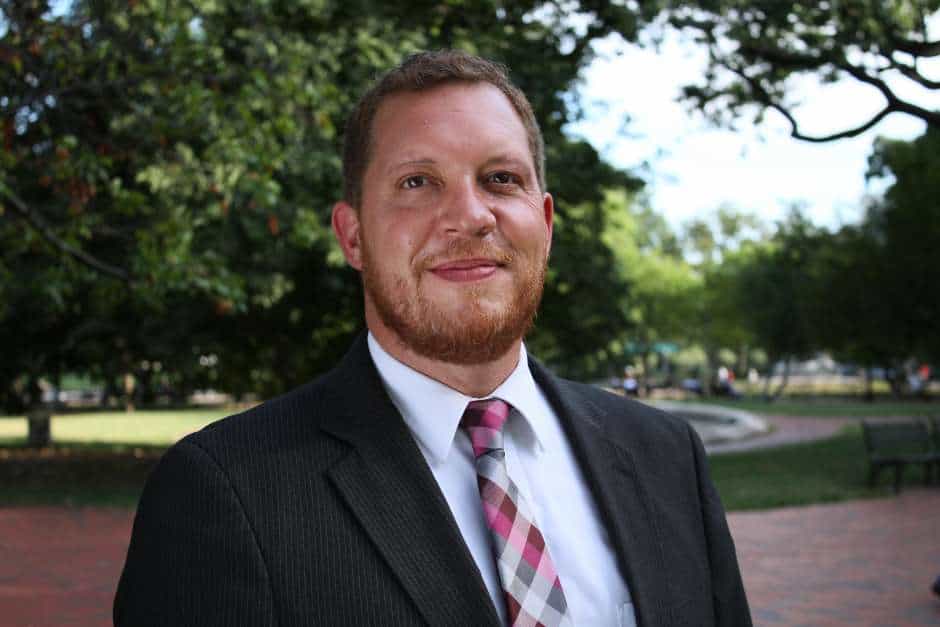Introduction
Independent ethics watchdogs urged members of Congress this week to probe why President Trump’s Air Force secretary nominee, former Rep. Heather Wilson, was paid by nuclear weapon contractors to do consulting work for which she refused to provide a detailed accounting.
Wilson, a Republican who represented New Mexico in Congress from 1998 until 2009, faces potentially robust questioning on Thursday March 30 at her confirmation hearing before the Senate Armed Services Committee, chaired by Republican Sen. John McCain of Arizona.
In separate letters to McCain and Sen. Jack Reed, D-R.I., the ranking Democrat on the committee, the public-interest nonprofit Project on Government Oversight [POGO] and a consortium of three ethics organizations from across the political spectrum – the National Legal and Policy Center, Citizens for Responsibility and Ethics in Washington and Public Citizen – encouraged the committee to question Wilson about her contracts with the weapons firms she’ll help oversee if confirmed.
Both letters cited a series of reports published in February by the Center for Public Integrity as a basis for their questions about Wilson’s nomination. The Center’s reports were based on federal records, many obtained under the Freedom of Information Act, that detail internal Department of Energy concerns about Wilson’s refusal to report in writing to three nuclear weapons laboratories how she was spending her time in return for payments totaling $20,000 a month.
The documents obtained by the Center also detail Wilson’s role in helping a subsidiary of Lockheed Martin – the Sandia Corporation – try to win to win a new seven-year Energy Department contract worth more than $16 billion without the competition ordinarily called for by federal regulations. “Your message to these people is that competition is not in the best interest of the government,” she told Sandia officials in a July 2009 email.
Sandia Corp., the Lockheed Martin subsidiary in Albuquerque that operates Sandia National Laboratories, where nuclear weapons are engineered, wound up billing the federal government for the $226,378 in fees that it paid to Wilson. But after an investigation by the Justice Department, it agreed in August 2015 to repay what it spent on Wilson and also give the government $4.7 million to settle the department’s claims that it had violated federal law by using federal funds to lobby for more federal money.
Wilson hasn’t said much in public about her work. But in a 2015 email to the Center for Public Integrity, she denied contacting federal officials directly to lobby for Sandia. Three other nuclear weapon contractors – the firms operating the Nevada National Security Site, Oak Ridge National Laboratory and Los Alamos National Laboratory – repaid the government $216,499 they had paid Wilson, also without obtaining a detailed accounting of the actual work Wilson provided.
In interviews with investigators for the department’s inspector general’s office, employees of the National Nuclear Security Administration described Wilson’s work for the weapon contractors as a “money grab” and a “soft landing,” after she left Congress following an election defeat. She “failed to produce any actual reports,” one of the investigators noted.
In one of the letters to the Senate Armed Services Committee, POGO Executive Director Danielle Brian questioned whether Wilson could objectively oversee the massive amount of work Lockheed Martin does for the Air Force, considering her past work for the company’s subsidiary at Sandia. Lockheed holds more contracts than any other Air Force contractor.
Brian also urged leaders of the committee to seek assurances from Wilson that she’d be more forthcoming with oversight agencies as Air Force secretary than she was as a paid consultant, when she insisted on withholding details of her work from the entities paying for it at taxpayer expense.
“POGO believes Ms. Wilson should be questioned about her past employment and that the Committee should ensure she commits to an open and transparent relationship with oversight bodies,” Brian wrote. She suggested that the committee ask Wilson why she engaged in business development for Sandia when her contract explicitly forbade it, why she insisted on keeping secret what she was doing, and whether she was aware that government funds were the source of her paychecks.
“Why should taxpayers trust you with their money?” Brian said the lawmakers should ask. “Ms. Wilson should not be confirmed until she has adequately provided the answers to these questions and proven that she does not have a conflict of interest.”
The ethics consortium’s letter drew a harder line.
“As leading organizations promoting ethics and accountability, we strongly urge you to vote against the nomination of Heather Wilson to be Secretary of the Air Force,” the letter said, citing “Wilson’s questionable actions on behalf of the largest contractor for the Air Force” as “a compelling case for not approving her nomination.”
When President Trump announced Wilson as his choice to head the Air Force on Jan. 23, he said, “Her distinguished military service, high level of knowledge, and success in so many different fields gives me great confidence that she will lead our nation’s Air Force with the greatest competence and integrity.”
Wilson graduated from the U.S. Air Force Academy in 1982, and then earned masters and doctoral degrees as a Rhodes Scholar at Oxford University in England. After serving with the Air Force in Europe, she became a member of President George H.W. Bush’s National Security Council staff. After leaving Congress and eventually halting her consulting work, she became president of South Dakota School of Mines, which pays her an annual salary of $373,000.
In Aug. 2013, she also joined the board of directors of Peabody Energy, the largest private-sector coal company in the U.S.; it’s currently in bankruptcy, but her financial disclosure said she’s been paid $200,333 for serving on its board. Wilson received roughly that amount annually, according to company shareholder reports. Since February 2016 she’s also been paid $46,000 for serving on the board of directors of Raven Industries, a South Dakota-based defense contractor that’s done $17.5 million in business with the Air Force, according to federal procurement records.
In a March 22 letter to the Office of Government Ethics, Wilson said she would resign from her college presidency and her seats on the boards of Peabody Energy and Raven Industries, and shed her stocks in those companies within 90 days. Wilson also pledged to divest stock she or her husband hold in 16 other contractors that work for the Department of Defense – including several of the Air Force’s most active contractors, such as Raytheon and Honeywell.
But she is not restricted from making decisions related to the Lockheed Martin Corporation, her former client, because that work didn’t occur in the past two years.
Read more in National Security
National Security
Overwhelming majority believe U.S. should remain in controversial arms accord
Trump wants out, says Russia has violated treaty’s terms, but even most Republicans oppose withdrawal.




Join the conversation
Show Comments